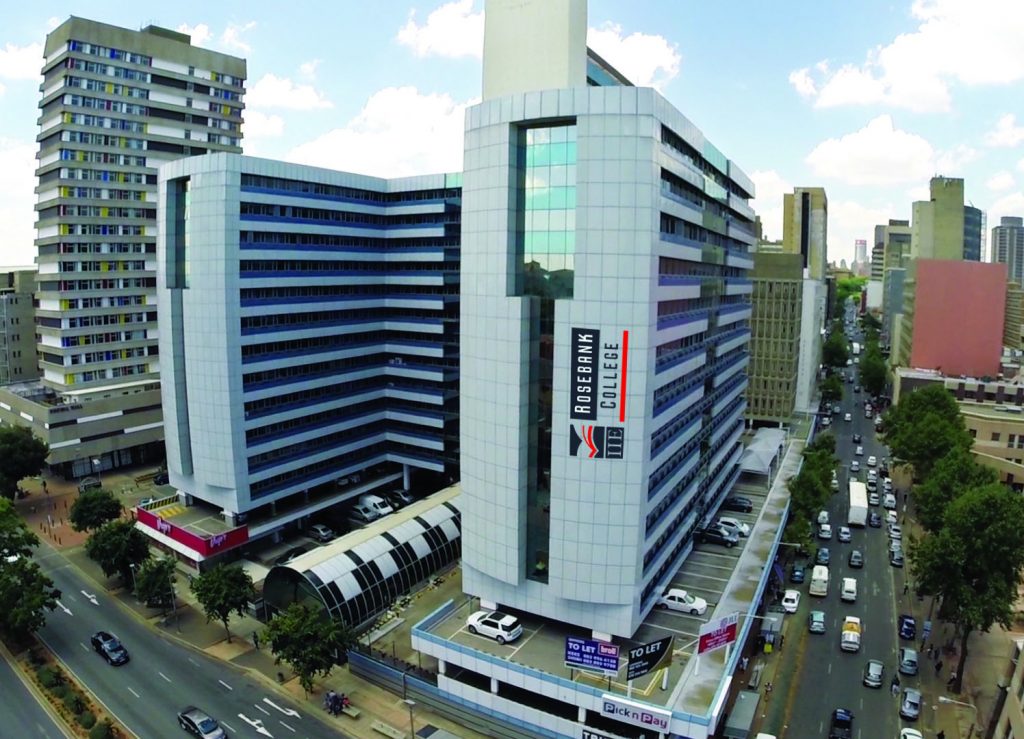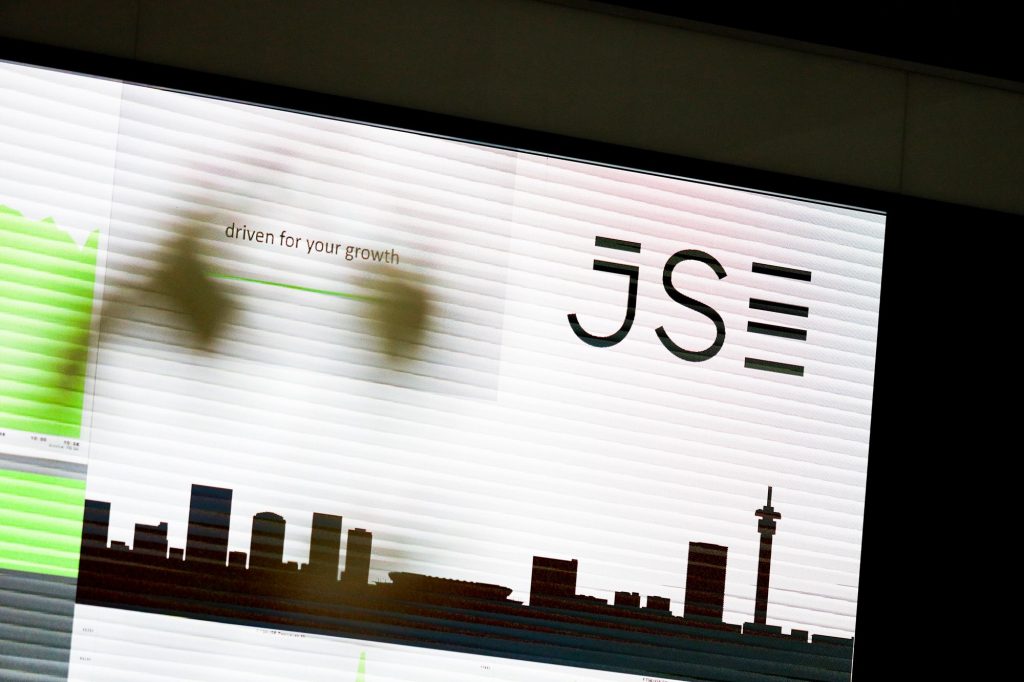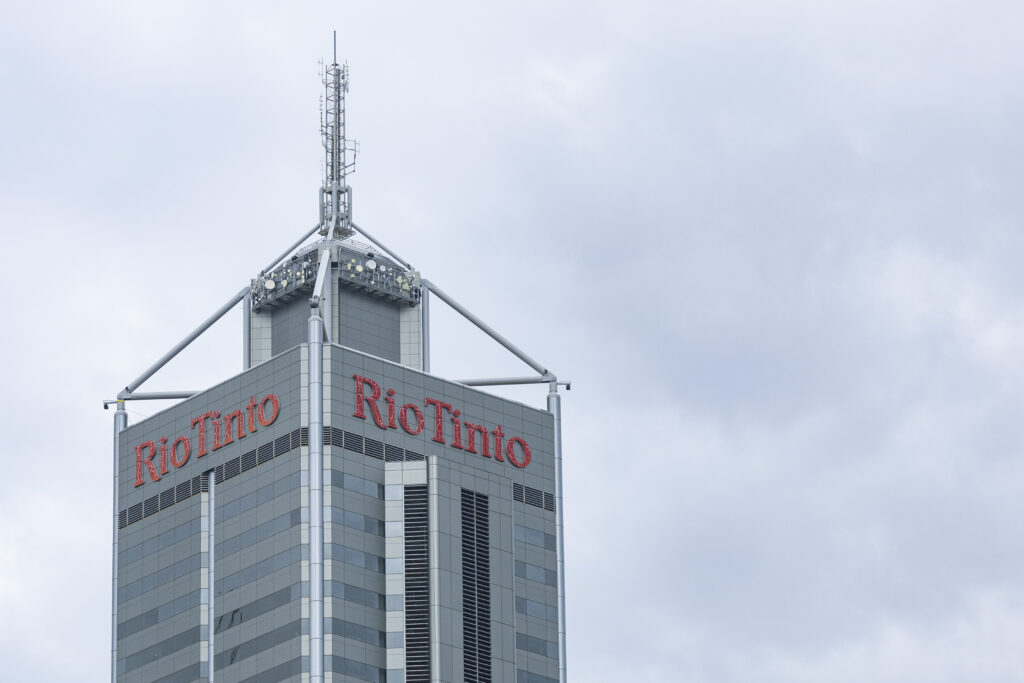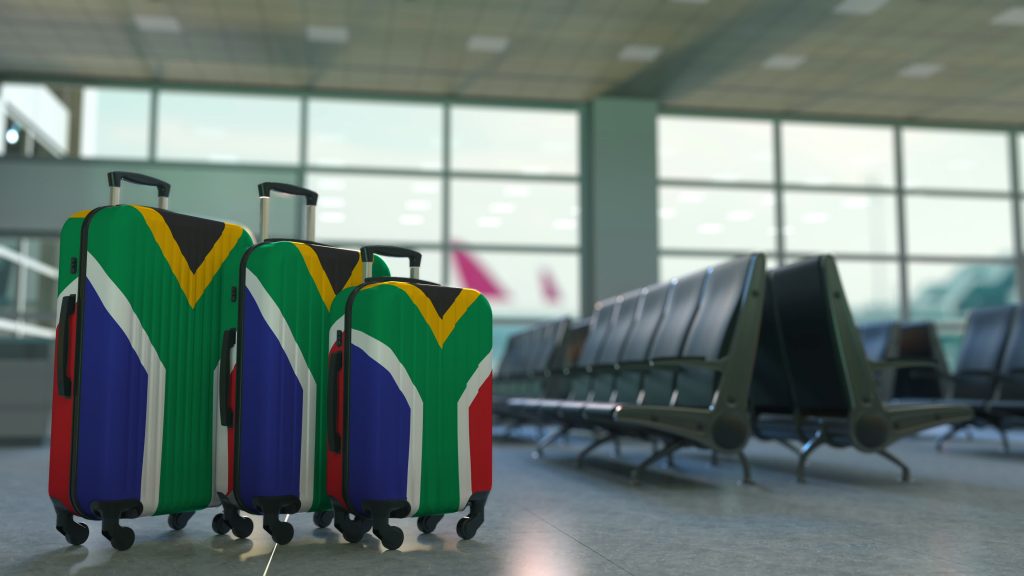You can also listen to this podcast on iono.fm here.
JEREMY MAGGS: Hello and welcome to Mandates & Megaphones, here on Moneyweb in association with Standard Bank. It’s the series where we explore how South Africa can turn its G20 presidency into real, tangible economic advantage.
This year, as you well know, we don’t just host the summit, we also lead the B20. That’s the business world’s official voice into the G20 process. But with multilateralism under strain, global trade tensions rising, and US tariffs already biting, the question is: can we deliver influence that really matters?
In that respect, Bernard Drotschie is the chief investment officer at Melville Douglas, a boutique investment management company within the Standard Bank Group. He’s here to tell us whether this is going to be a defining year for Africa – for African trade, African business, diplomacy – or, hopefully not, another missed opportunity.
Bernard, a very warm welcome. Let’s start with a broad overview, if we can, as G20 host, what do you think this country’s single most important economic objective needs to be?
BERNARD DROTSCHIE: Hello, Jeremy. Thank you very much for the opportunity. Well, I think there’s a lot to be achieved this year from the G20 Summit. From what I can recall, the theme for this year’s summit is solidarity, quality and sustainability, which I think is a reflection of the G20’s commitment to inclusive development and cooperation.
So I think what we’re trying to achieve from a South African point of view is, on behalf of not only South Africa but also the rest of Africa, to, I guess, get a better deal going forward.
Whether it comes to healthcare, whether it comes to funding of some of the initiatives we have in place, and also when it comes to trade with not only, obviously, the US, but with the rest of the world. So, the aim should be really to ensure that in terms of the development going forward for the global world and for developing Africa, that it certainly becomes more inclusive into the future.
Read/listen:
G20 Summit called on to ‘spark long-term impact’ for Africa – Fuzile
From dependency to power player: How Africa can rewrite its future
B20/G20: Can business speak for Africa and be believed?
JEREMY MAGGS: Bernard, in terms of that better deal that you mentioned, do you think at this point the B20 is fully aligned to deliver that?
BERNARD DROTSCHIE: Good question. I think obviously with the US being involved in being one of the founding members, there clearly are some concerns out there. To give you a sense, I think if you just think about the US administration’s so-called America First policy, they’ve certainly strained the multilateral cooperation on things such as climate change, global trade, and then, of course, gender equality.
So there definitely will be a question mark in terms of whether they will be able to meet some of these objectives as a result of that. But it’s not just that.
If you think about what’s going on currently with regard to Russia’s war in Ukraine, also the events in Gaza, that’s also further complicated consensus building …
The question is, around the table, how difficult will it be this year to obtain consensus?
I think historically also what we’ve seen is there’s been a number of good initiatives, whether it’s on climate change or whether it’s on trade. But the follow-through has in some cases been quite poor. I think, unfortunately, if one goes back in history, it’s also true to say that some of the countries at the time have been opting out of contentious issues. So your question is very relevant.
Read/listen:
America First policy spurs Africa startups to seek new backers
US trade wars with China – and the impact on Africa
Trump 2.0: What’s at stake for South Africa?
JEREMY MAGGS: There’s a lot of pressure, is there not, Bernard, on South Africa itself. We might have the presidency of the process, but do you think it’s going to in any way change or alter our negotiating leverage?
BERNARD DROTSCHIE: I think time will tell. I think currently we in South Africa are obviously dealing with a difficult relationship with, let’s say, the US on the one side, also a member of the G20. So I think we need to do a lot in terms of improving our relationship with the US, which is currently obviously not good. It hasn’t been the case for some time now. That’s affecting us from a trade point of view, but perhaps also in the future from a funding point of view.
So there are those concerns out there. Whether we will actually influence the outcome of what is being discussed at the end of November, during the summit, time will tell.
But there’s no two ways about it, I think it’s obviously a great privilege that we are hosting the summit in South Africa.
The fact that we’ve been asked to chair the summit, I think all of that bodes well. But as I say, with all these summits, there’s a lot to discuss and debate and at the end of the day, the question is what is going to be implemented?
JEREMY MAGGS: Principal among that, as you’ve already referenced, is global trade integration. I guess the jury is still out as to whether the G20 can deliver on that. Or inevitably, as we’re starting to see, it is shifting to more regional blocs.
BERNARD DROTSCHIE: Quite right. As you know, global trade certainly over the last few years has declined in importance. We’ve seen that basically since the global financial crisis, that has been the case. Clearly, with Trump in his first term, there were obviously more signs of that happening.
So, in general, I think nationalism and protectionism have certainly intensified over time. I think the concern really is the direction of travel here. So if you just think about it, last year in 2024, there were more than 3000 new trade restrictions that were introduced. Then of course, the recent trade war also from the US side hasn’t been very helpful. So I think the fact of the matter is that with all these changes happening in the background, there’s no two ways about it, you’re quite right, from a global trade point of view, there has been a change in terms of the various blocs out there and who various countries associate themselves with.
Clearly, Brics [Brazil, Russia, India, China and South Africa] has been growing over time, and from a South African point of view we’ve decided to trade with them on a more regular basis, and there’s certainly been enough evidence of that over time. It’s not just Brics obviously, it’s Europe and so on.
Listen/read: Johannesburg showdown: Can Brics bend the G20 to its will?
JEREMY MAGGS: Bernard, how difficult do you think it’s going to be for Africa, the continent itself, to arrive with a united position, because there’s a huge cost, is there not, if we don’t?
BERNARD DROTSCHIE: Quite right. So again, South Africa will be representing the whole of Africa and there’s obviously a lot to discuss. For Africa there is a lot to gain, if you think about it from an exporting point of view. If you think about the scarcity of food resources, metals, certainly Africa can play an important role there.
But then Africa also needs the help from, as a developing continent in terms of access to healthcare, affordable healthcare, in terms of development of infrastructure that needs to be funded. So there is a lot to be gained from an African point of view, and we hope that we’ve managed to gain some momentum as a result.
JEREMY MAGGS: As you referenced, Bernard, a little earlier, the big elephant in the room is the US tariffs, which are now fully in force. One way or another it is going to affect our G20 strategy. The problem, I assume, though, is we’re not quite sure how.
BERNARD DROTSCHIE: Well, I think we know it’s going to be negative. I think at this point, what is difficult is by how much, basically. Nobody really wins from trade tariffs. So much has happened during the course of this year since the announcement was made on 2 April. At that point in time, it was called the Liberation Day.
So it’s quite clear in terms of what the US president is trying to do, he is obviously trying to negotiate a good outcome for US corporates and he’s using the tariffs as a method of doing that. He wants to open up markets for US companies so that they can export more of their goods into other regions. But there’s also an opportunity for the rest of the world to negotiate.
So I think at the end of the day, on the one side, while President Trump is trying to open doors for US companies and also trying to use tariffs to pay for some of the fiscal expansion that he has announced over the next few years, there have to be opportunities for countries also to gain from this. But I think at the end of the day, it needs to be negotiated.
We know that President Trump is transactional.
Even from a South African point of view, from what I understand, we are now starting to negotiate about potentially lowering the tariffs on LNG [liquefied natural gas] for instance, even on poultry. Let’s see if that plays out.
But at the end of the day, America, the US administration, wants to negotiate. If we play our cards correctly, then I think for many countries, including South Africa, we could potentially benefit from that in time.
Read: SA has chosen a risky approach to global politics
JEREMY MAGGS: Bernard, I want to return to a couple of the agenda items in just a moment, but I am also interested to find out, in this uncharted new global paradigm that you’re talking about, how is this impacting on your approach to investment?
BERNARD DROTSCHIE: I think there’s obviously quite a lot of uncertainty out there at this stage. But to be fair, I think that has been the case now for some years. If you just think about the developments that have transpired since the global financial crisis, we had the global financial crisis, we had the European crisis, we had Trump’s first term, we had Covid-19, we’ve got two wars currently, unfortunately, in Ukraine and of course in Gaza. So we are used to, I guess, periods of significant volatility.
Our strategy really is to focus on the fundamentals. From an equity point of view, our philosophy is to be invested into the best companies out there.
Companies that have a unique offering that makes them very profitable, that allows them to grow their profits. As far as equities are concerned, it is to find those ideas and not overpay for that.
But outside of that, the other way we deal with these sorts of periods of uncertainty is through diversification, which is basically, as you know, the only free lunch in investing. So it’s not about placing large bets on just one asset class or just one sector, for instance. It’s about being diversified across the various asset classes available for investors, whether it’s equity, fixed income, cash and so on, whether it’s in South Africa or offshore.
We think by doing that over time we can meet our clients’ investment objectives and that is to really grow their wealth in real terms.
Listen/read: ‘Don’t invest in an investment you don’t understand or can’t value’
JEREMY MAGGS: But there is concern if the US economy slows, and that would mean that there is some negative exposure as far as Africa’s growth is concerned.
BERNARD DROTSCHIE: Absolutely. At the end of the day, I think the US is still by far the largest economy in the world. It contributes about 25% to global GDP. The economy is over $30 trillion. It’s very significant.
To give you a sense, just the consumer spending component in the US is actually larger than China, and China is the world’s second largest economy. So what happens in the US does matter.
Clearly, when the US economy sneezes, the rest of the world catches a cold. So I think that has been the case for some time. So clearly some moderation in growth, we certainly don’t expect the US economy to go into recession, it will certainly be a headwind for the rest of the world.
Having said that, it’s not all negative. So while potentially tariffs will hit the consumer in terms of what it means from a disposable income point of view, I think it is important to understand that while these tariffs have been implemented, it’s all very recent. Companies and households still need to adapt to this.
Listen/read: US retail triumphs despite tariffs
I think as far as this pain is concerned that Trump has been talking about for some time now, this will be felt by both the exporters, the importers and to some extent households as well. So I think it will be divvied up and not just that, the dollar has weakened quite a bit this year. That tends to be good for developing economies, especially those sitting with dollar debt.
We’re in an environment where interest rates globally are coming down, and we still see scope for that to continue for a little while.
Then outside of that, I think regulation in areas like Europe, even Europe is talking about it, less regulation potentially could also stimulate growth. So yeah, while there are concerns in terms of potentially what a slowdown in the US will mean for the rest of the world and Africa, I don’t think it’s all just negative news.
JEREMY MAGGS: Bernard, let’s look a little bit at risk as far as this big event is concerned. I was wondering if the G20, in one way or another, fractures maybe over energy security or climate financing or even sanctions, how should South Africa, do you think, be positioning itself? There is a high cost, surely, to neutrality.
BERNARD DROTSCHIE: Exactly. I think that is quite right. So the positioning is something that I think that we’ve been battling, unfortunately as South Africa for some time, or at least it’s the way that it’s been coming across, I guess the message out there or the perception of how we position ourselves.
So I think in terms of trade going forward, what is very clear here is, well, actually before I started talking about the trade, I think because of the environment that we’re in globally, it’s very important for South Africa to basically continue along the lines of implementing the structural reforms, because we need to get our economy to grow at a much, much higher level to deal with the unemployment issues and everything else that we’re all very aware of.
Read: Beating unemployment: Can SA reform fast enough?
So trade is important, and who we partner with is also very important. But outside of that, there’s enough for us to do here in South Africa in terms of basic service delivery and that can actually enhance growth very significantly over time…
We’ve got to deal with our structural challenges that we’re facing, and with Operation Vulindlela, some of that is happening, although, I guess, very slowly.
But certainly, from a trade point of view, clearly, the US is important to us. I think around 8% of our exports nowadays are exported to the US. But like many other countries, we will have to adapt, we will have to find new markets, and I think companies or sectors tend to do that if you’re interested in growing your business and enhancing your profits over time.
So we’ll have to adapt, we have to find new partners. The US is important in our lives, no two ways about it, but it’s not just about the US. We also do a lot of trade with various other countries, including Europe and specifically Germany and China. So it’s just realigning ourselves. But as you say, the important thing is to remain neutral in terms of how we are perceived by some of the international countries, including the US.
JEREMY MAGGS: I want to pick you up on that realignment argument, which I think is absolutely critical. If we do pivot away from the United States, and you’ve already referenced the European Union, what are the other more viable trade partners that we should be looking at? Obviously China is there, but where else do we cast that net?
BERNARD DROTSCHIE: Yeah, in actual fact, it’s interesting, Germany is actually our largest export market, followed by China and then the US. Certainly, there are a number of agreements or preferential arrangements in place which will assist us in basically exporting more into the rest of the world.
Now, I think some of the areas, as you’ve mentioned, I still think there are a lot of opportunities in the rest of Asia and the Middle East for us. I think that’s where we certainly are focusing on, from what I understand, in terms of our good relationships with some of those countries. But also, we talk about Europe, Europe still remains to be very, very important. While Germany is our largest export destination at this stage, we do also export into many other countries.
So I think it’s about companies adapting here in South Africa in terms of who they are exporting into. But from an opportunity set point of view, I think there are many opportunities still for us to explore over time and we have been doing that. Similar to what we’ve seen out of China, if you look at China, for instance, the US is still important to them as an export destination but nowadays it’s become a smaller share of their total exports. In South Africa, that trend has been in place now for some time as well.
JEREMY MAGGS: Bernard, a little earlier you mentioned the importance of enhancing growth, and no one’s going to disagree with you in that respect. I’m wondering to what extent our presidency, then, of this process is going to be used to accelerate infrastructure finance, not only for South Africa and Southern Africa, but across the rest of the continent. Is that something that is giving you maybe a degree of optimism?
BERNARD DROTSCHIE: Absolutely. I think the government knows exactly what is required to get this ball rolling in South Africa to increase the growth momentum going forward. We have a plan out there. We’ve got within the presidency, Operation Vulindlela trying to implement it. It has been difficult.
So I think what is very clear, and you’ve raised a very important point, is how are we going to fund the spending. So I think there are numerous ways. Africa obviously gets the benefit of funding at a preferential rate that has been negotiated over many years, and certainly South Africa and Africa will continue to do that. I think the key thing is just to have a plan in place and to present that it’s viable, because at the end of the day, these things need to be paid back.
Read: South Africa has met 10% of reform targets, new tracker shows
So although clearly, we are very reliant in terms of the funding from certain development cooperations, development banks and the IMF [International Monetary Fund] and so on, it’s also important that we can showcase that we’ve actually incorporated the private sector in South Africa in a much, much bigger way. The private sector itself actually can fund a lot of these projects.
I think this combination between having a plan, getting the private sector involved, improving confidence in general here in South Africa, both from a household point of view as well as from the private sector, will also make it a lot easier for us to raise funding from the various institutions out there. The same applies obviously for Africa at the end of the day. But the key thing is to come up with a credible plan that everybody buys into.
JEREMY MAGGS: Bernard, I’d like to get your view on climate financing, if I can. We know that often those finance pledges keep falling short, do you think that South Africa is in a position to block consensus until there is binding funding? Is a move like that realistic for an economy of our size?
BERNARD DROTSCHIE: I don’t think so. Clearly, at this point in time when there’s a lot of uncertainty, then something like climate change is perhaps not at the forefront and perhaps not that important. But I don’t think you can change the trend over the long term. So I really don’t think we should be going in a different direction as far as that is concerned.
The fact of the matter is that the world wants a cleaner Earth basically, we want to reduce the levels of pollution and so on over time.
We think that’s good for all sorts of reasons. I don’t think it’s a good idea to be against a tide. So the availability of funding based on those criteria that you’ve mentioned, I don’t think is going to go away and it’s something that is definitely a source of potential growth for our economy in South Africa.
JEREMY MAGGS: I don’t want to be a harbinger of gloom, but if the G20 deadlocks, do you think there’s a plan B for African economies? Should there be one?
BERNARD DROTSCHIE: Well, they definitely has to be a plan B, and certainly one of those plans, which I think is already in place to some extent, is the intra-Africa trade, which I think is crucial. I think there’s a lot that the continent can benefit over time from intra-trade preferential rates. I think we know that a lot of that’s already in place, if you think about the African Continental Free Trade Area [AfCFTA] that has come about over the last few years.
But certainly, if the G20 was to break up, it will be a lot more difficult for us to get the necessary support from the big funders. We’ve seen this year what’s happened from an American point of view, where they’ve pulled out in terms of certain initiatives, and that can be damaging in the near term.
The good news is, at least from what we’ve seen, is that in areas where the US has pulled out of in terms of funding and so on, some of the European countries have also come to the party to assist. But the fact of the matter is that in order for Africa to prosper and in order for Africa to invest into infrastructure, healthcare, education and all those things, to some extent we will continue to be reliant on preferential funding rates from some of these countries.
JEREMY MAGGS: Let me finish the conversation on a positive note. In your head, Bernard, is there a headline that you would like to read the morning after the summit about general success and performance?
BERNARD DROTSCHIE: I think what would be very useful is if we can see that there’s more buy-in from the US specifically. It’s still the largest nation in the world as far as the global economy is concerned. So I think if there’s evidence of that being the case, in other words, the US being keen to remain an important player within the G20 and in terms of meeting those objectives, whether it’s climate change or whether it’s global trade or equality or whatever the case may be, I think that would be perceived as very positive.
Any news in terms of an improvement in global trade and countries looking to work together and I think perhaps just the resolution in terms of the wars that we’re currently dealing with. So I think all of those things potentially together could be viewed as quite positive. But I think from an African point of view and from a South African point of view, certainly we will do our best to get the necessary support from the rest of the world.
JEREMY MAGGS: Bernard Drotschie, chief investment officer at Melville Douglas, thank you very much for your insights. Now let me end by saying this, the G20 year is South Africa’s chance to set the tone, as we’ve been discussing, for Africa’s economic future. But the value is not going to be measured in speeches and in photo opportunities, but in hard outcomes. That’s Mandates & Megaphones in association with Standard Bank.
The Mandates & Megaphones Podcast will be published weekly on Mondays until the summit concludes in late November. Listen on Spotify, iTunes, and other popular platforms or download the Moneyweb app to stay informed – anytime, anywhere.
This feature was brought to you by the Standard Bank Group.

 19 hours ago
1
19 hours ago
1






















 English (US) ·
English (US) ·